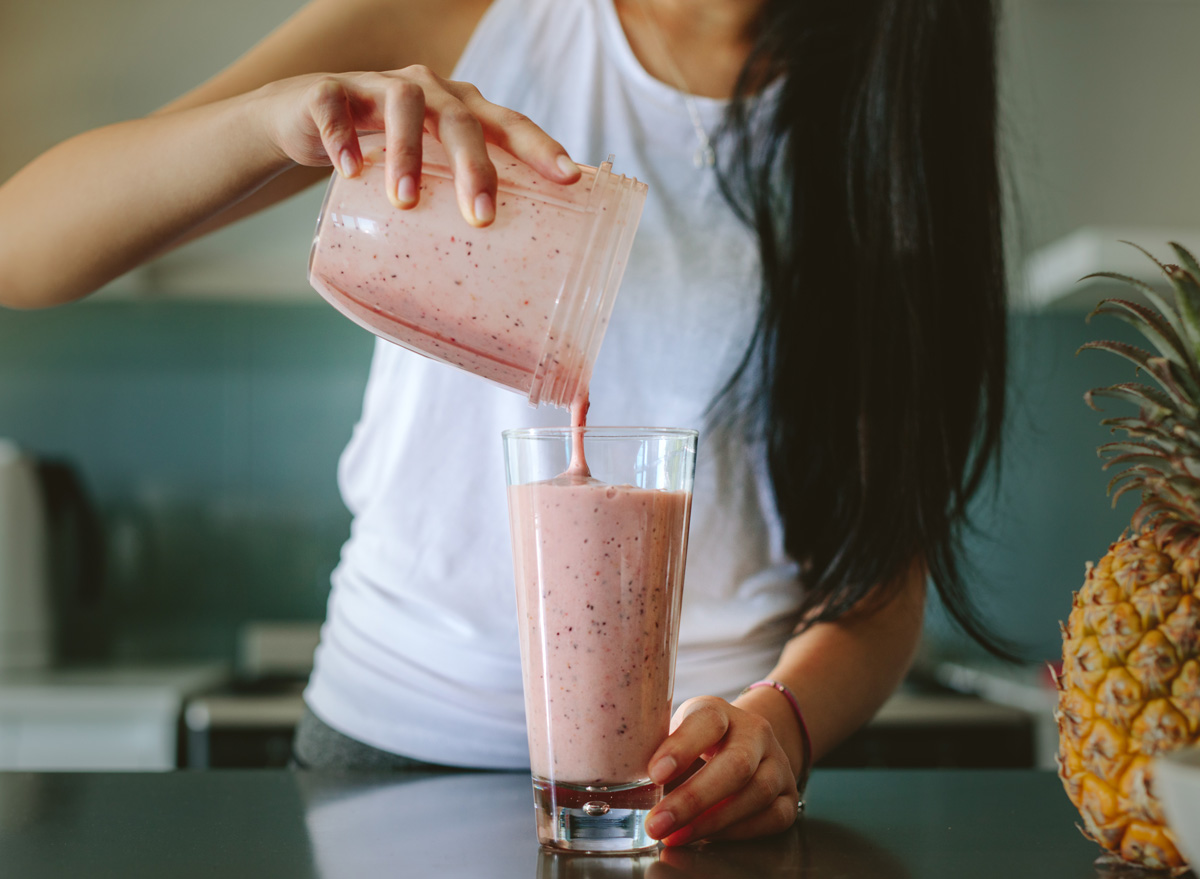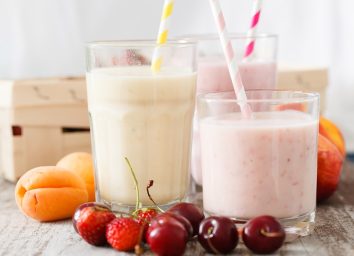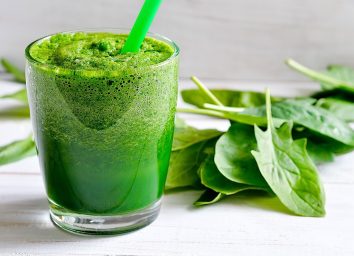Side Effects of Giving up Smoothies, According to Science

Smoothies are often considered a healthy addition to your diet, making it easy to increase your consumption of fruits and vegetables and load your meal plan with essential vitamins and minerals with the touch of a blender button. In many cases, these drinks are even touted as a meal replacement that can help make shedding pounds easier.
However, if you're getting tired of pulling out and washing that blender every morning or are no longer seeing the results you were looking for with weight loss smoothies, you may be considering giving up smoothies. If these blended fruit beverages have been a part of your diet for a while, your body will inevitably experience some major side effects once you cut them out. Read on to discover how giving up smoothies may affect your health. And if you want to improve your health in a hurry, check out The 7 Healthiest Foods to Eat Right Now.
You may have a harder time recovering from workouts.

If you've been using smoothies as your post-workout recovery drink, you may notice subtle changes in how you feel after exercising when you give them up.
According to a study published in the Journal of the International Society of Sports Nutrition, individuals who consumed a blueberry smoothie before and after experiencing exercise-induced muscle damage had faster muscle recovery and experienced their oxidative stress—a type of imbalance between antioxidants and free radicals in the body—decrease faster than study participants who received a placebo.
Want to keep smoothies on your menu without sabotaging your goals? Try The 25 Best-Ever Weight Loss Smoothies.
Your skin may look less healthy.

That glowing complexion you've been enjoying may not be long for this world if you plan to cut smoothies out of your regular routine. A 2017 study published in the journal Evolution and Human Behavior found that consumption of smoothies rich in carotenoids—pigments commonly found in orange, red, and yellow fruits and vegetables, among other foods—subtly changed the color of study participants' skin over a period of time, making them appear healthier to observers. However, if you've been regularly drinking smoothies and suddenly cut them from your diet, this perceived healthy glow may start to fade.
You may find yourself less hungry.

If you're thinking of giving up smoothies to eat more whole fruits instead, you may find yourself less hungry in the long run. A 2018 study published in the journal Nutrients found that individuals who consumed equivalent portions of fruit salad or smoothies felt significantly fuller after eating the whole fruit. And if you want to enjoy your favorite fruits while slimming down, check out the 9 Best Fruits for Weight Loss, Approved by a Nutritionist.
You may eat fewer (or more) calories.

While smoothies may be part of many weight loss plans, cutting them from your diet may actually make it easier to shed those extra pounds—only if you've been making them wrong. A 2018 study published in the International Journal of Food Sciences and Nutrition found that when a group of 10 individuals consumed either a cereal and milk combination, fruit smoothie, or a high-calorie fruit smoothie for breakfast, those who consumed the high-calorie smoothies increased their total caloric intake over the course of the day. On the other hand, regular fruit smoothie drinkers actually consumed 80 fewer calories per day compared to cereal eaters. So what does this mean?
The researchers were testing to see if your body would register the difference between a regular fruit smoothie and a nearly identical fruit smoothie that had extra calories. Because participants didn't consume fewer calories later in the day after drinking the high-calorie smoothie, the researchers concluded that it's hard for the body to determine the total number of calories you're drinking. So if you're making your smoothie wrong (with high-calorie ingredients), it'll be much easier for you to gain weight. Make sure you're making healthy smoothies by avoiding these 11 Most Fattening Smoothie Ingredients, According to Experts.
Your kidney health may benefit.

If you have kidney health issues, cutting smoothies from your meal plan may be beneficial in the long run. Many of the ingredients commonly added to smoothies, including berries, spinach, soy milk, and nut butters, are high in oxalates, which have been linked to the development of kidney stones.
In one instance recorded in the American Journal of Kidney Diseases, a 65-year-old woman's diagnosis of acute oxalate nephropathy—a condition in which crystals form in the urinary tract—was found to be attributable to her consumption of oxalate-rich smoothies. And if you want to keep your kidneys healthy, check out these Popular Diets That May Cause Damage to Your Kidneys, Science Says.








